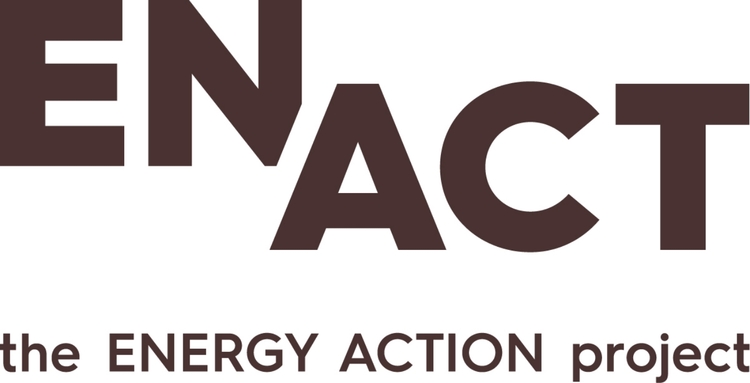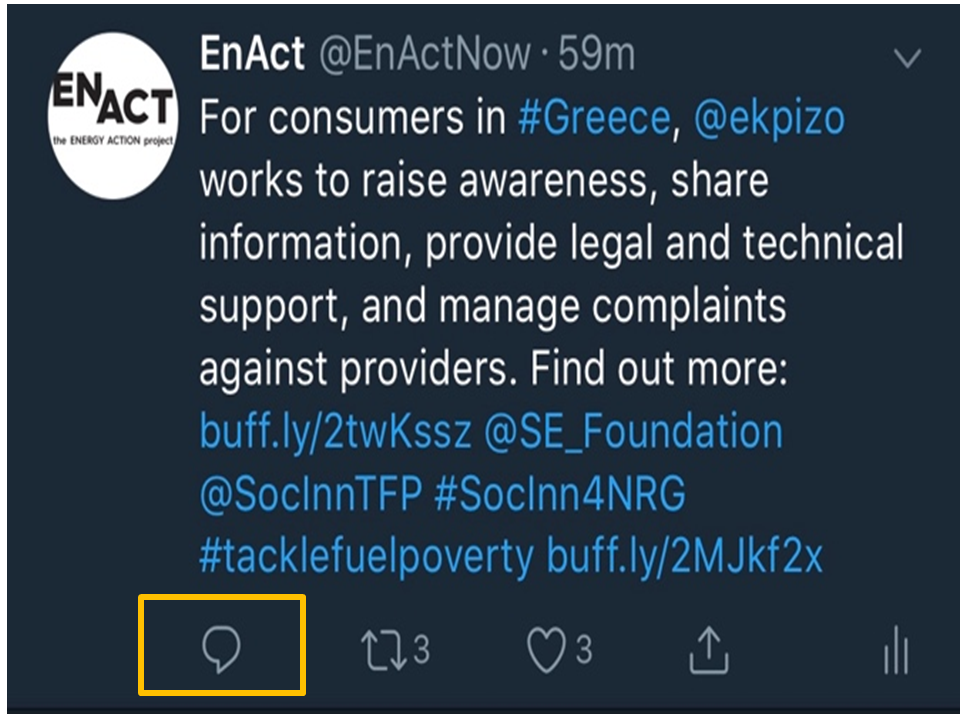EnChat 1: Energy poverty and the European Green Deal
Following an EnChat, EnAct offers mind maps and mini-blogs to dive deeper into the topic of why the European Green Deal must address energy poverty.
Why an EnChat?
Marilyn Smith, EnAct Executive Director
With COVID-19 shutting down events, invitations to webinars and ZOOM calls have threatened to take over many of our agendas. I’ve listened in on some GREAT presentations, but realized quickly that the opportunity to truly interact was very low.. Maybe a Q&A at the end, but what are the chances of my question being selected among 20 or more? And zero chance to chat over coffee during breaks.
When considering a Twitter chat (which we’ve rebranded as ‘EnChat’ to cue that ours will always be about energy), I admit to being hesitant. Some past chats have felt like being in a confined space where everyone is scrambling to make their own points but not taking time to really listen and engage.
With the EnAct Team, we decided to pre-set questions and give people time to plan their inputs. We also invited knowledgeable people to ‘lead’ each sub-topic (thankfully, taking a lot of pressure off ourselves!).
The hour came and went quickly! With 27 participants from 11 countries adding up to 175 posts and 687 likes/engagements. Nice results, but we still wondered “For the effort involved, is sufficient value in an EnChat?” Particularly because we knew that some people were simply not able to participate in real-time. And also because 280 characters can only scratch the surface of very interesting ideas.
And so here we are with two ways we aim to add value to all EnChats:
A mind-map that shows the thread of engagement for each question, including who contributed.
A blog series where we invite people to write more about particularly interesting points.
We believe the value of an EnChat will come from using it as a starting point to dig deeper and engage across countries and sectors. We’re thrilled to learn that participants have already reached out to each other!
We also took to heart the suggestion of using EnChats to go beyond the ‘big’ questions that get asked over and over again (e..g. Where does energy poverty exist?).
And, for the record, we REALLY liked feeling a global connection with engaged people for that full hour! :). A BIG thank you to everyone who got up early, stayed up late or otherwise put aside whatever else was demanding their attention to join in.
EnAct hopes to make EnChats a monthly event, pending our ability to secure funding that supports the follow up work to deliver value. If you have a topic idea — or would like to co-produce an EnChat, drop us a line: marilyn.smith@en-act.org
For info on how to participate in an EnChat, scroll to the bottom of this page.
To get an enlarged view of a particular slide below, ‘right click’ and choose ‘Open image in a new window’, then go to your the new window in your browser.
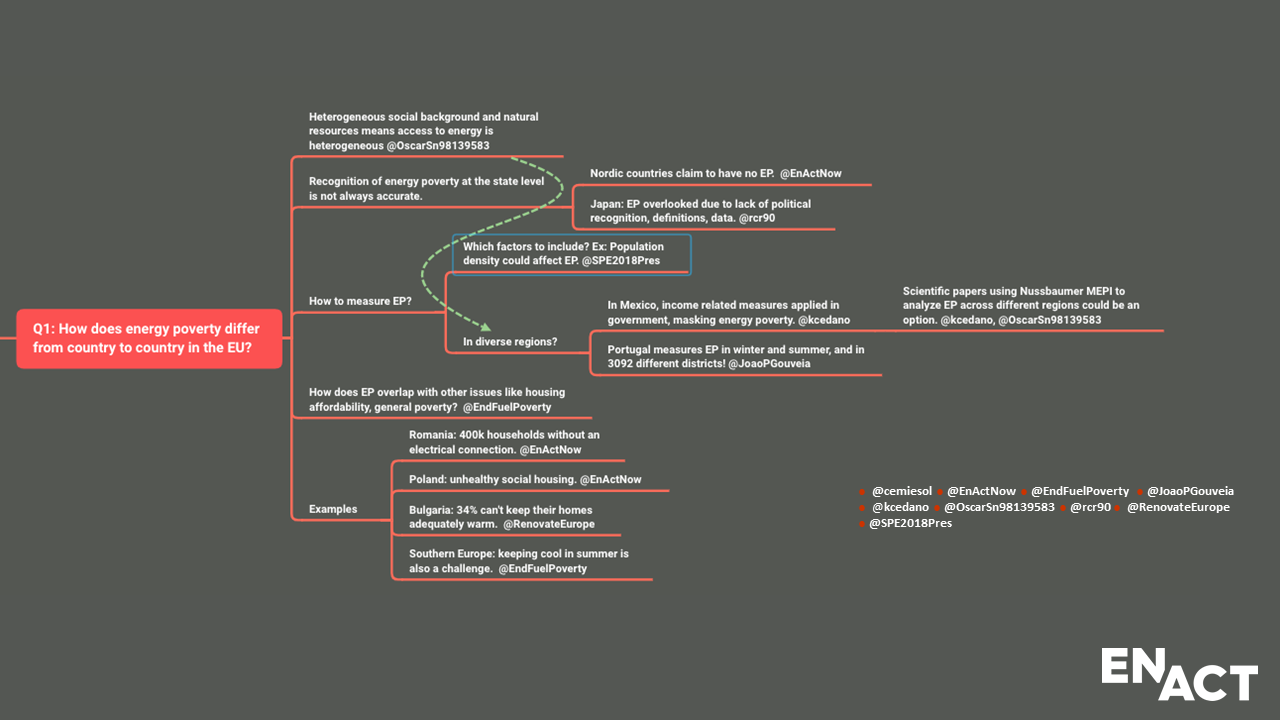
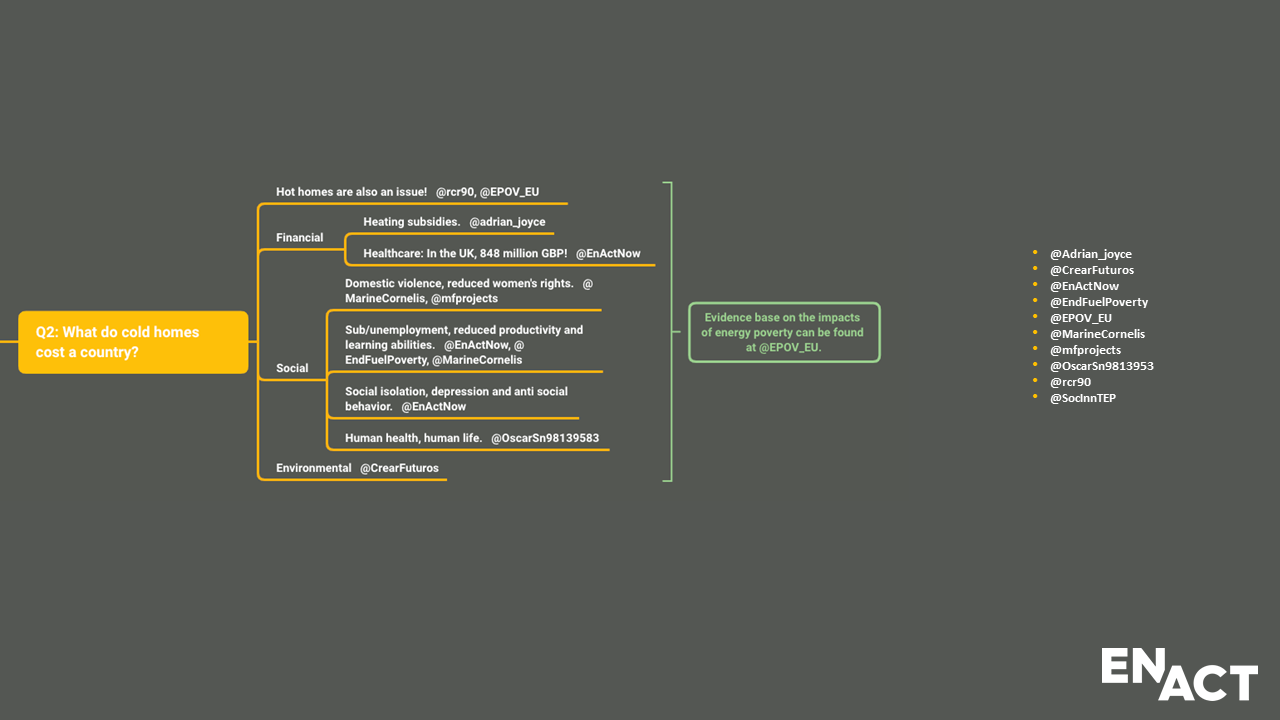
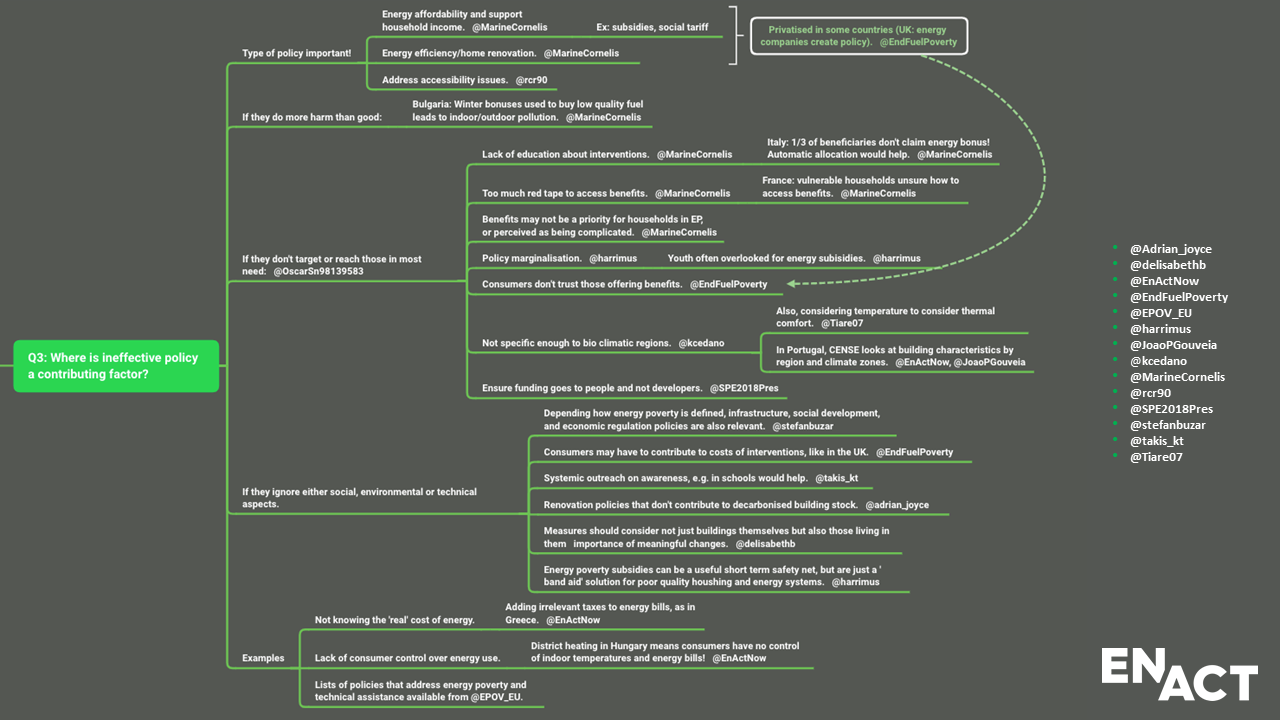
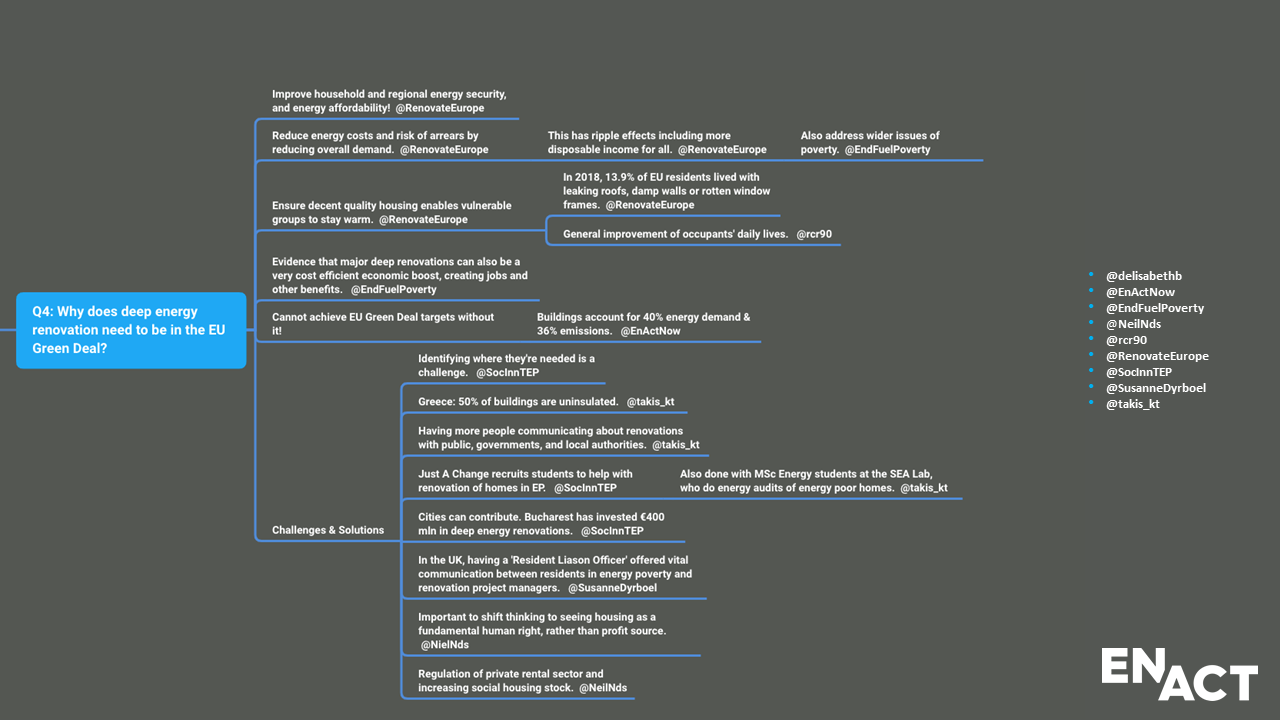

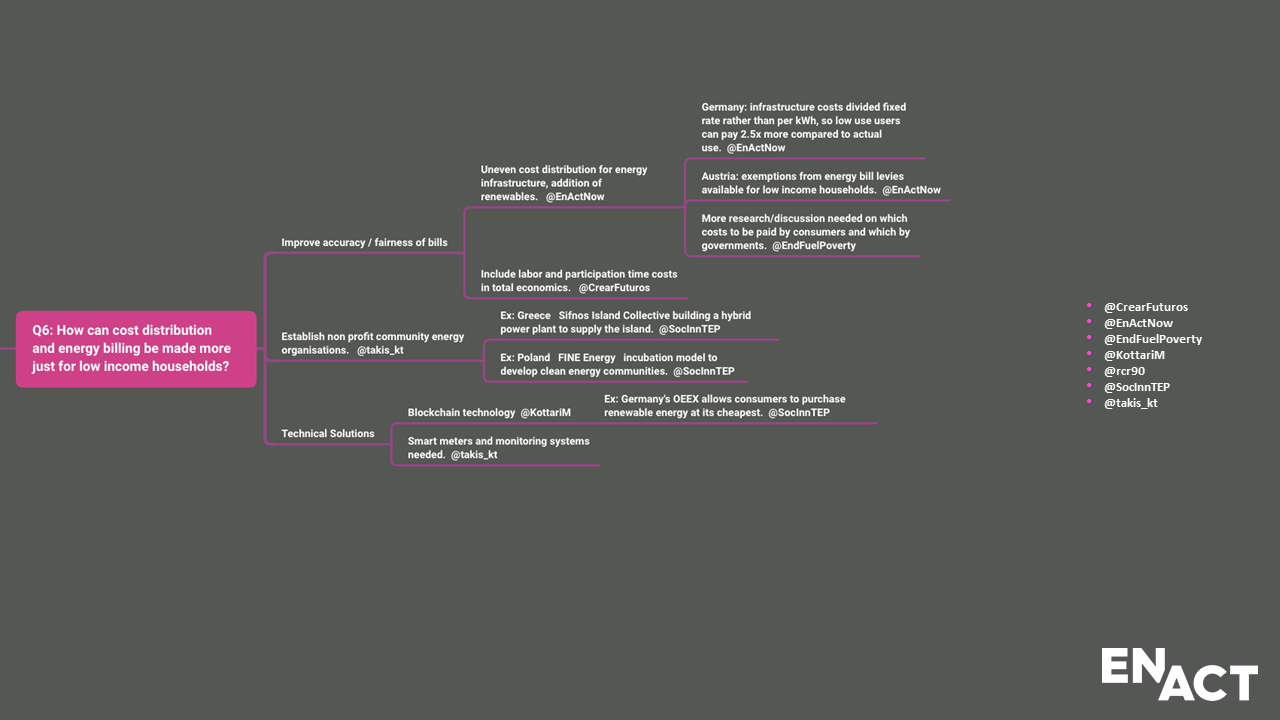
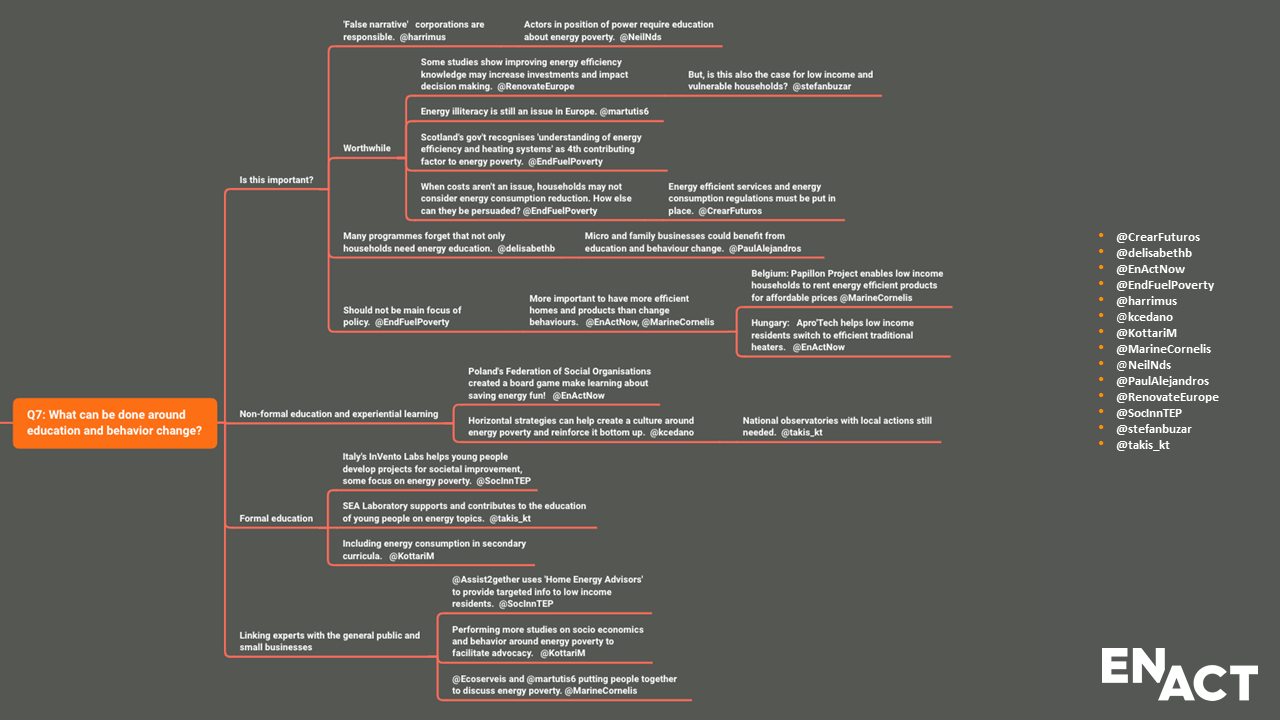
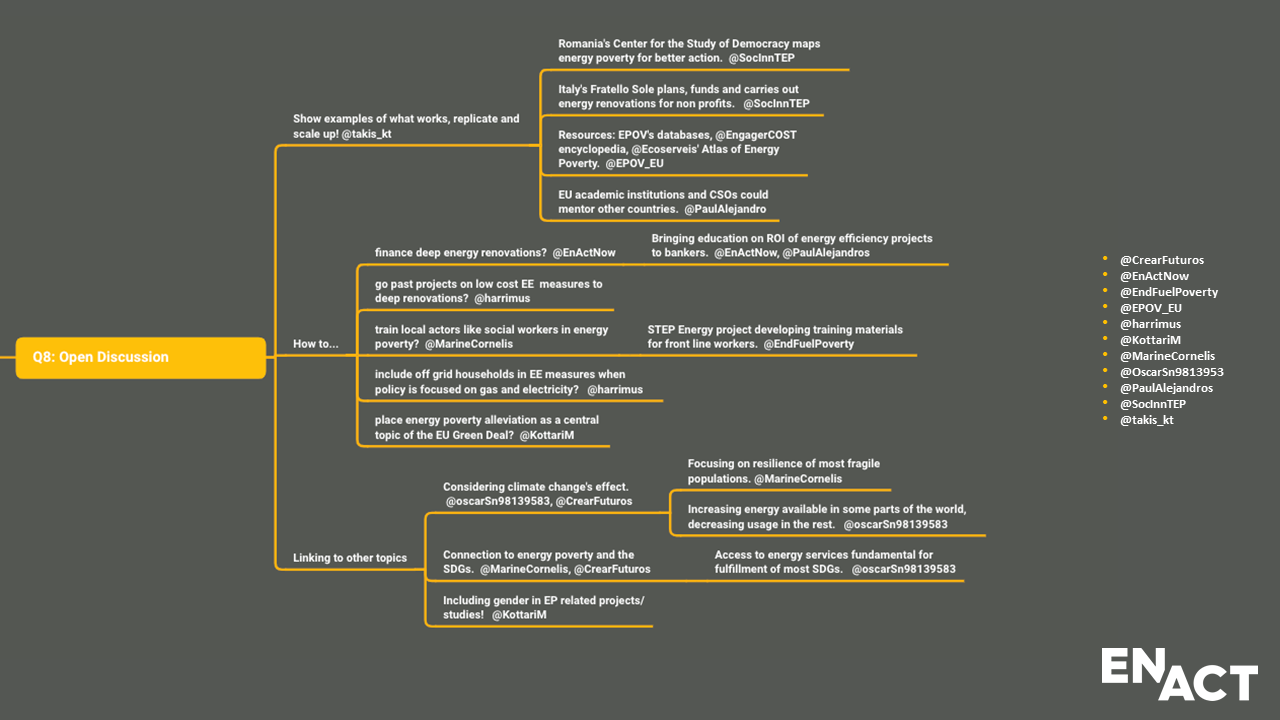
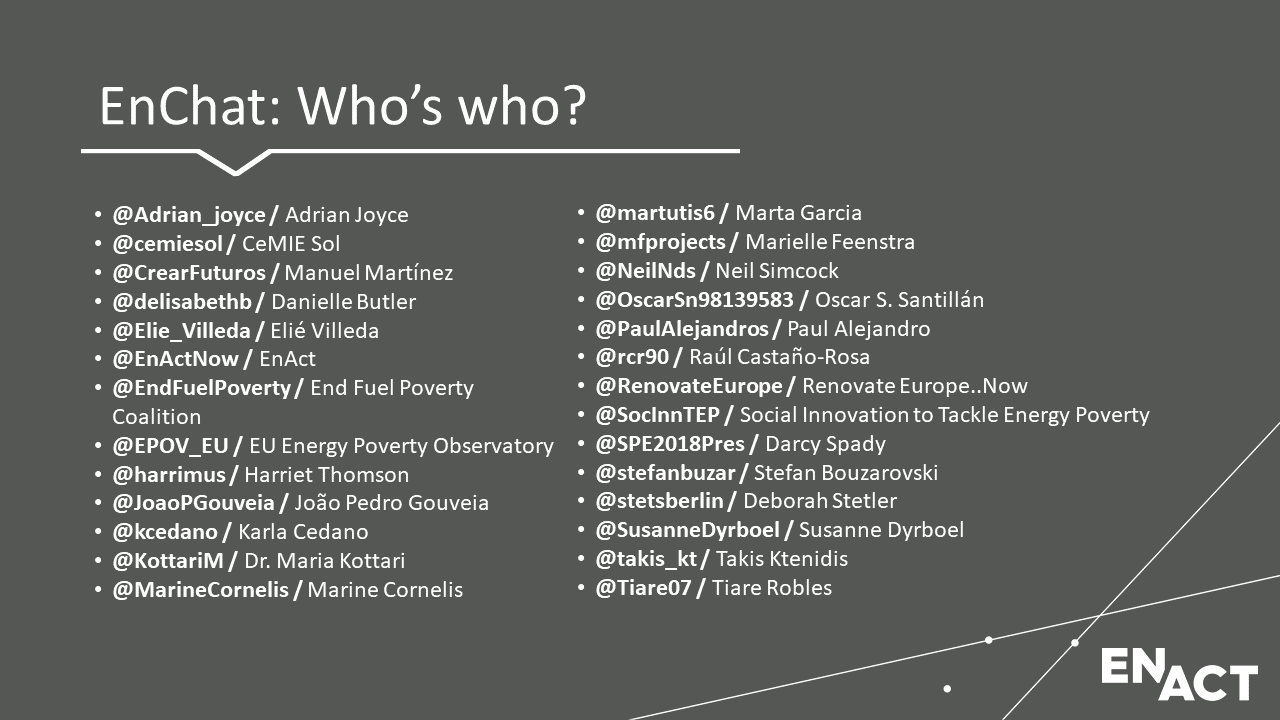
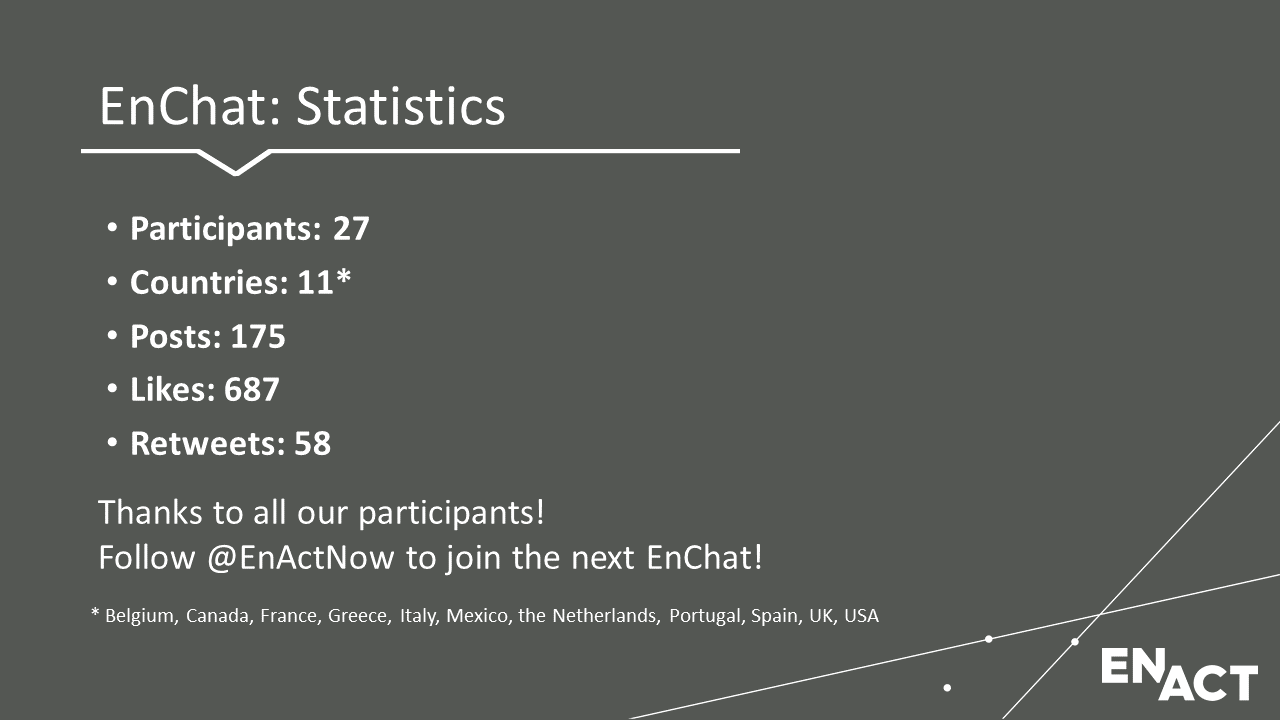
Danielle Butler, Researcher
@delisabethb, Sustainable Housing & Urban Studies Unit, University of Salford, UK
In over ten Twitter years, this was only my third or fourth Twitter chat. I find them hard going. Catchy titles and topics pull me in, but then I find it hard keeping up with the pace and following the discussion. This wasn’t at all the case for the recent EnAct Twitter chat on ‘Energy Poverty and the EU Green Deal’ which focused on 7 key questions helpfully prepared and shared in advance.
So, as well as following the contributions of others throughout the hour, where did I chip in?
Q2 asked What cold homes cost a country?.This immediately made me think of the widely cited 2009 Age UK research that estimates annual costs to the UK’s National Health Service to the tune of £1.36 billion. I’ve often used this striking figure, as have many others. It gets attention and it never fails to stimulate discussion when included in a presentation. But, it left me wondering whether an updated piece of work had been done? A moment later and #EnChat had my answer in the form of a link to the very engaging and interactive feature on EnAct’s website based on work undertaken by the Buildings Research Establishment.
As a researcher interested in how best to effectively support those living in or at risk of fuel poverty, and how effectiveness won’t mean the same thing to everyone, Q3 Where is ineffective policy a contributing factor? – made me think of NEA’s work on evaluating the £26.2 million Health Innovation Programme. One of the main conclusions of this large-scale national social evaluation was the call across research, policy and practice to keep a dual focus on the social and the technical. Update, retrofit, adapt buildings all we like, but unless we take steps to understand the people and the lives lived within those four walls, we will waste opportunities for meaningful and sustainable change, doing little more than adding to a list of ineffective or insufficient policies. For me, and related to my own research area in energy advice, I’m often left worried that advice delivery is merely done as a tick box exercise and unlikely to have resulted in positive outcomes for householders, such as better understanding, increased confidence or improved energy literacy or know-how.
Lastly, and questioning some of the underlying assumptions with which we enter our research or policy, Q7 What can be done around education and behaviour change? — prompted me to note that often programmes and initiative are designed and evaluated from a starting point that it is (only) households that need educating, modifying, changing in some way. And this simply isn’t the case. Better understanding of lives lived? Yes. But there is a wide range of actors, organisations and institutions that play key roles in shaping and sustaining energy poverty, and the behaviours and understanding of these players are critical, too.
One final word on the excellent geographical spread of the contributors taking part in the EnChat, not only in terms of where they were based, but also where they had undertaken work. As someone whose work has primarily been focussed on and based in the UK context, this was incredibly insightful and I definitely noted names and saved links.
How to participate in an EnChat?
A EnChat (Twitter chat) is like a virtual networking event. A group of Twitter users, usually contacted beforehand, hop onto Twitter at a prearranged time to share thoughts a given topic, using a designated hashtag (#EnChat / EnChat_billing). (Read more)
EnAct (@EnActNow) will host and moderate, posing the questions (Q1, Q2…) to prompt responses from participants and encourage interaction.
How to participate
Once a question is ‘Tweeted’, participants ‘respond’ by clicking the comment button below it (speech bubble) and typing their own Tweet (attaching photos or graphics if they wish). We encourage you to pre-prepare, as the time goes by quickly!
Use the ‘Comment’ bubble to reply to a specific question, adding a number before (A1, A2, etc.) to keep the thread and using the #hashtag provided for the specific EnChat.
This creates a ‘thread’, keeping all relevant responses attached to the question.
If you wish to tweet several responses to a given question, use the same comment button, but add ‘A1, A2, A3’ to the start of your responses to create a sub-thread. This also keeps responses in chronological order.
Insert the #hashtag given for a specific EnChat so your responses are linked to it.
Use ‘@’ to make sure specific participants see your Tweet.
For more information, please contact Alyssa Bougie (alyssa.bougie@en-act.org).
